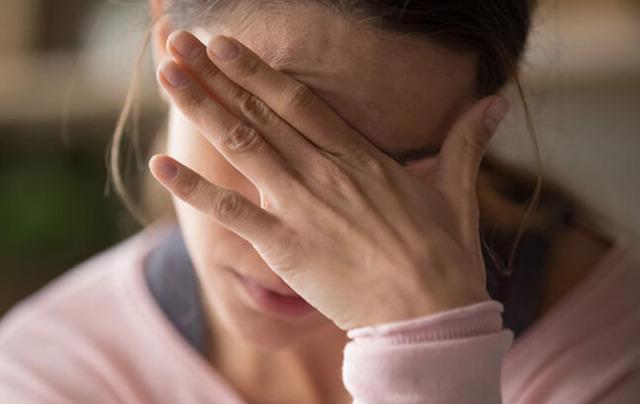Infectious Diseases and Clinical Microbiology Specialist Prof. Dr. Yasemin Ersoy said that according to World Health Organization data, more than 443 thousand children lose their lives due to diarrhea every year.
Underlining that diarrhea is a serious health problem, Prof. Dr. Ersoy said, “Although the numbers are lower in developed countries, summer diarrhea is a significant problem, especially with the increase in hot weather. As for the causes, we generally see 3 important reasons. With the increase in temperature, travel-related diarrhea is seen due to the consumption of unsafe foods, drinking water from unsafe sources, and the increase in the rate of travel.”
Prof. Dr. Ersoy, who drew attention to the fact that the source of diarrhea in the summer season can be bacterial, viral or parasitic, stated that these factors occur when drinking or utility water or food is contaminated, and when food is not prepared according to appropriate hygiene rules and is not stored correctly. He also added that sometimes sick people directly or indirectly transmit the virus to other people, especially through hands; and that with the increase in temperatures, swimming in unhealthy water bodies, poorly disinfected pools and seas close to points where sewage is mixed can also cause the transmission of diarrheal agents and other infectious agents.
“THE MOST IMPORTANT PROBLEM IS LOSS OF WATER AND ELECTROLYTES”

Prof. Dr. Ersoy, who stated that 3 or more liquid stools per day are defined as diarrhea, stated that stools that are out of routine in number and consistency should also be evaluated in terms of diarrhea. Ersoy stated that clinically diarrhea is sometimes accompanied by complaints such as fever, nausea, vomiting, abdominal pain and headache; that the most important thing in diarrheal cases is water loss; that water loss can cause serious clinical findings and severe conditions that can lead to death. Prof. Dr. Ersoy said that it is very important to replace the lost water and electrolytes, therefore, in cases of diarrhea, oral fluid and electrolyte supplements should be given as much as possible, and if this is not enough, intravenous fluid and electrolyte supplements should be given.

Prof. Dr. Ersoy, who stated that increased sweating in the summer months will cause rapid fluid deficit and electrolyte imbalance, said, “If the cause of diarrhea can be determined or if there are conditions requiring antibiotic treatment, treatments for this will again be carried out by Infectious Diseases and Clinical Microbiology specialists or the relevant physician. Diarrhea with a high number of diarrheas; diarrhea accompanied by nausea and vomiting; bloody diarrhea or prolonged diarrhea require immediate medical attention. In addition, diarrhea that seems mild in those with diabetes, chronic renal failure or underlying diseases that impair immunity can also cause serious consequences.”
“DO NOT DRINK WATER FROM UNKNOWN SOURCE”

Prof. Dr. Ersoy, who stated that incubation periods vary depending on the type of microorganism, said, “Sometimes the microorganism contaminates the food and creates toxins. When we ingest the toxin, we may encounter diarrhea cases again. Drinking water is especially critical in diarrhea. Water of unknown origin should definitely not be drunk.”
Prof. Dr. Ersoy, who explained that tap water is safe unless a warning is issued by local administrators, recommended that drinking water should be boiled before consumption in cases of necessity and that water that comes after an outage should not be drunk immediately.
“5 KEYS TO SAFE FOOD”

Prof. Dr. Ersoy, who mentioned the World Health Organization’s “5 keys for healthy food” suggestion, listed these 5 items as follows:
“First; Keeping it clean. It is necessary to wash hands before cooking and as needed during the process, to ensure that the environment and materials used are clean, and to protect foods from contact with animals such as insects, flies, mice or pets.
Latter; Cooked and raw foods should not come into contact with each other. Materials used for foods such as raw meat, chicken and fish, such as knives, cutting boards, etc., should be separate, and they should not come into contact with cooked foods during storage.
Third; It is important to pay more attention to the correct cooking methods, especially in foods such as meat, chicken and fish. It is important to make sure that large pieces are well cooked. Because, normally, microorganisms that can cause diarrhea are killed in foods cooked at 70 degrees for 30 seconds, but it is necessary to make sure that the inside of large meats has reached this temperature. Not every part may reach the same temperature during cooking or heating in microwave ovens. Therefore, it should be ensured that all food reaches sufficient heat.
Fourth; It is also important to store food correctly until consumed. The temperature between 5-60 C0 is the appropriate temperature for bacteria to multiply and produce toxins. Therefore, it should not be left at room temperature for more than two hours after cooking, it should be stored below 5 C0, and even if it is in the refrigerator, the storage period should not be too long. If cooked food needs to be reheated, it should be heated above 60 C0.
Fifth; “Safe water and food should be used. Clean water is also necessary for washing vegetables and fruits. It is also important to cut and clean the spoiled or rotten parts of the food.”
“IT IS ESSENTIAL TO WASH YOUR HANDS BY SCRUBBING FOR AT LEAST 20 SECONDS”

Prof. Dr. Ersoy, who emphasized that proper hand washing prevents the transmission of many diseases as well as diarrhea, explained that before eating, after using the toilet, after touching garbage, chemicals, raw meat or chicken products, after touching animals, changing diapers, blowing our noses, smoking, we should rub our hands with soap and water for at least 20 seconds, rinse with plenty of water and dry with a clean towel. (İHA)
